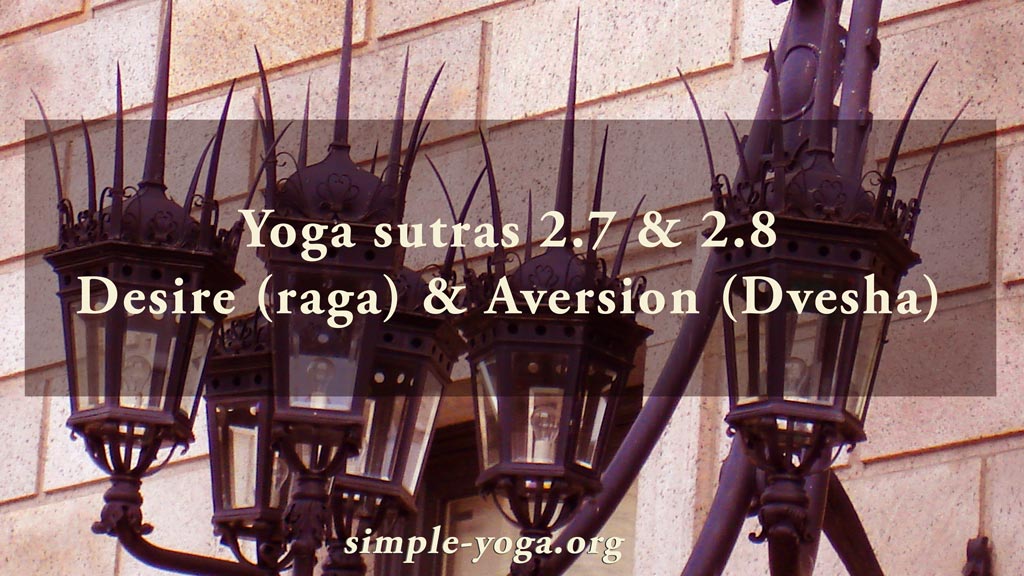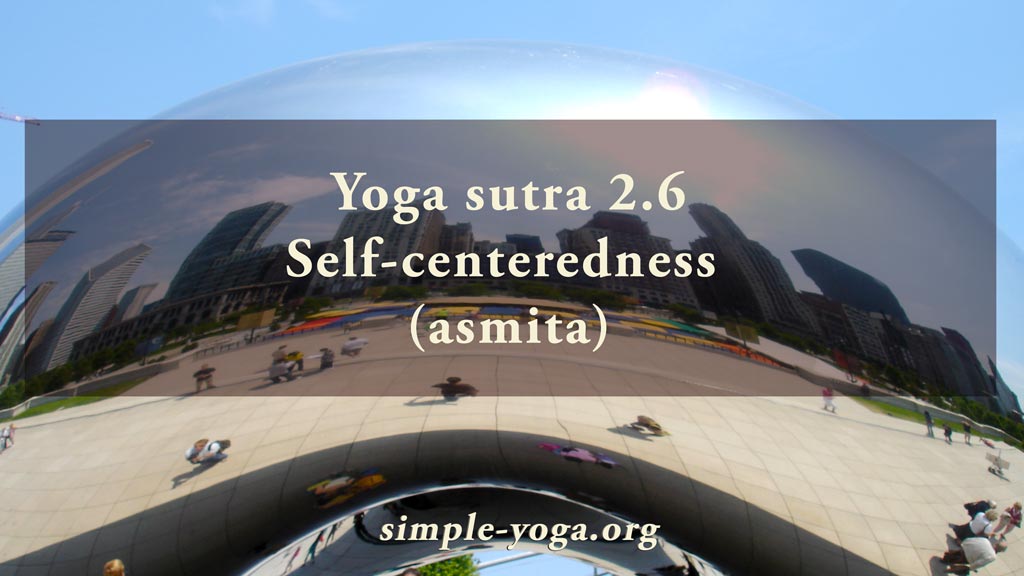
2.5 Confusing permanent and impermanent
April 12, 2020
2.7 & 2.8 Desire and Aversion
April 26, 2020
2.5 Confusing permanent and impermanent
April 12, 2020
2.7 & 2.8 Desire and Aversion
April 26, 20202.6 Self-centeredness (asmita)

2.6 Confusing awareness with my body, mind and emotions results in self-centeredness (asmita).
A sense of “I” develops when the instruments of seeing, your body and mind, are confused with the power of seeing, the awareness that enables any and all perception. Your body, mind and emotions change constantly. Your environment is also changing continuously, and all your actions are part of these endless ongoing transformations. Moreover, body, mind and emotions have the tendency to develop habits: your ways of being. If you are not aware of those habits, opinions and stories, you may not notice how they shape and influence your perception, actions and interactions. If you grow up hearing that the world is a dangerous place where everybody is trying to take advantage of you, you are likely to develop a different attitude than a person who grows up hearing that cooperation and interconnectedness are what have made it possible for human beings to thrive and prosper. The ways of being that are active in your system will also influence the affliction in this verse, asmita or self-centeredness. Asmita consists of associating your sense of being with who you think you are, with the stories that you and others have created in your head. Quite possibly, many of the distractions arising during your daily activities and yoga practice are directly related to who you think you are or should be.
To inquire into your true nature, you can re-visit the techniques and questions in the episode Who am I?, in the episode about sutra 1.3, in the episode about sutra 1.4 or in the episode about sutra 1.5.
You may also explore the following questions: Are there any parts of your body that do not change? Are there any thoughts or beliefs in your mind that never change? Are there some emotions in you that are always present without ever changing? Is there something in you that is not temporary? When you look at yourself in the mirror, is there a part of you that has remained the same throughout the years? When you are asleep, where does your awareness of body, thoughts and emotions go? What is left then? You may also investigate if there are some misperceptions distorting who you think you are such as “I am not good enough,” “I am not complete,” “I am lacking” and “I do not deserve unconditional love.”
As usual, one more way of exploring the meaning of this sutra is by chanting it.
You can choose to chant it in its traditional form with all of the words coming together:
2.6 dṛgdarśanaśaktyorekātmataivāsmitā
दृग्दर्शनशक्त्योरेकात्मतैवास्मिता॥६॥
Another option is to chant each word in the sutra individually:
- dṛg
- darśana
- śaktyoḥ
- eka
- ātmatā
- iva
- asmitā
If you prefer, you may listen to the podcast:
Unravel the thread is now available as a book!
If you find Simple-Yoga.org and Unravel the thread useful, consider supporting my labor with a donation, you may also donate using PayPal or Venmo. Thank you!
